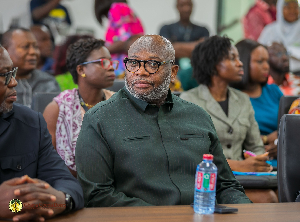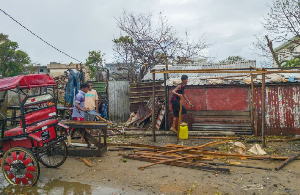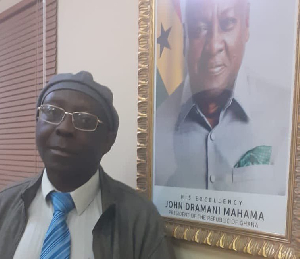Dr. Tetteh Hormeku, Head of Programmes of the Third World Network (TWN-Africa), on Thursday called on the government to reject proposals for new rules to be adopted by the World Trade Organisation (WTO).
He said the proposals for the new agreements in the areas of investment, competition and government procurement, should not be adopted since they would undermine the development efforts of the country.
Negotiations in the WTO in reality are built around the adoption of a particular version of policy and legislation to the benefit of the developed countries, he said.
"Under each of these, the aim of the developed countries is to remove policies in developing countries, which allow them to determine areas of their economies foreign investors should operate in and how domestic enterprises are to be encouraged vis-?-vis the foreign investor".
Dr. Hormeku was addressing the end of a week's public forum, discussions, trainings and briefings on trade policy issues in Ghana organised by the Network.
He said the government procurement legislation before Parliament when passed would have serious repercussions on the economy.
"If we can get our Ministers to say no to these policies then we can make a headway," he said adding that, "the steps we can take to diversify the economy, they are the same steps the WTO is preventing us to take".
Dr. Hormeku noted that pressure for the adoption of the proposals was becoming greater as the 5th Ministerial Conference in Cancun, Mexico in September 2003 approached.
At the Cancun Meeting, the final decision would be taken on whether to include a competition policy in the WTO, he said adding that, since the Doha meeting, the developed countries had deliberately undermined efforts to address issues of interest to Africa.
Dr. Hormeku said what the country needed were policies to support domestic production and not an African Growth and Opportunity Act AGOA".
Many African countries have already been designated eligible for AGOA, he noted and said African governments must not pursue the initiative since that would mean accepting all the unfair measures in the WTO.
The WTO should address problems existing in the agreements, which are harming African and other developing countries, Dr. Hormeku said.
Mr Gyekye Tanoh, a Social Activist, said moves for liberalisation in the WTO, which had a negative impact on developing countries, should be stopped.
He called for equitable international trade rules, the implementation of the Doha Mandate to address the public health problems and independence for developing countries to pursue policies appropriate to their needs.
Business News of Saturday, 22 February 2003
Source: gna












